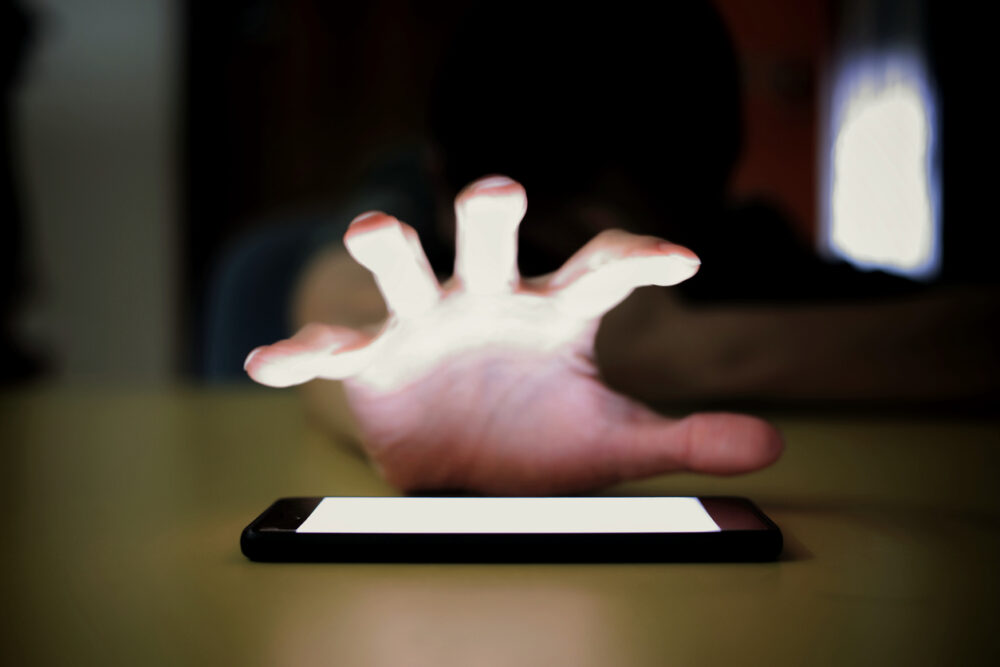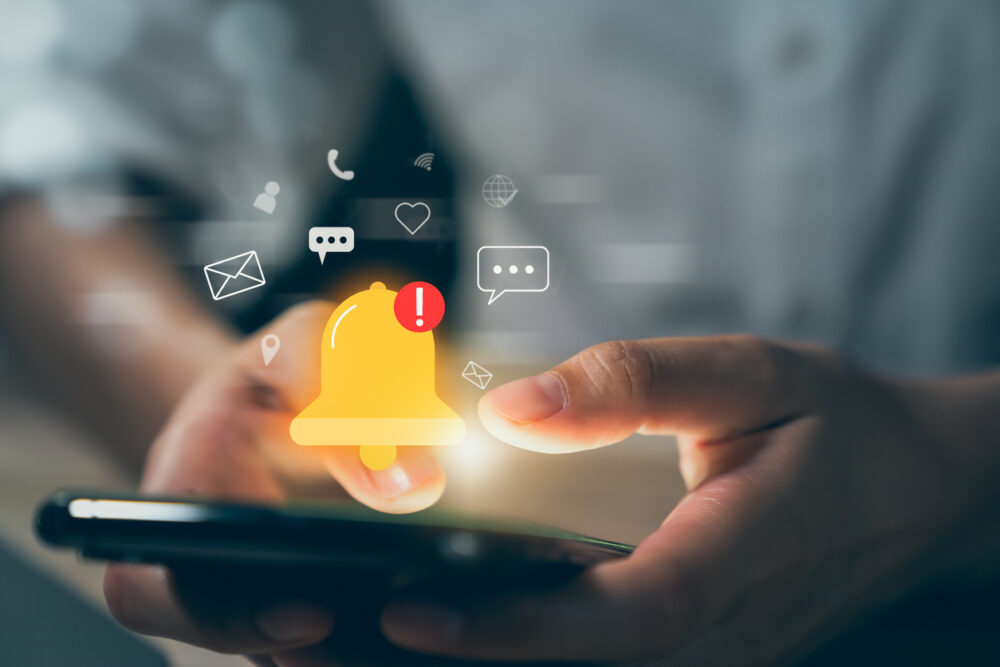The apps aren’t just stealing your time—they’re rewiring your biology.

You know you check your phone too much. Most of us do. But this isn’t just about wasting time or losing sleep—it’s about what constant digital stimulation is doing to your nervous system, your memory, your focus, and even your posture. These apps weren’t made to support your well-being. They were made to hijack it. And the effects don’t just stay on the surface.
This isn’t about blaming yourself or swearing off screens. It’s about understanding the real, physical toll of habits that have quietly become reflexes. The longer we ignore what the scroll is doing to our brains and bodies, the harder it becomes to pull away. These warning signs aren’t just mental—they’re deeply physiological. And the more aware you become, the more power you have to protect your energy, your health, and your attention.
1. Dopamine loops keep you chasing hits, not satisfaction.

Every notification, like, and scroll triggers a burst of dopamine—your brain’s reward chemical. But unlike natural dopamine spikes (like laughter or connection), tech-induced hits are shallow and fast, creating an endless loop. You reach for your phone for relief, but you leave feeling emptier. Then you do it again.
Writers at Newport Institute explain that constant stimulation from social media can dull the brain’s dopamine response, making it harder to feel reward from everyday activities. What used to feel like pleasure starts to feel like maintenance.
You’re not addicted to content—you’re addicted to the unpredictable drip of dopamine your apps are designed to deliver. And that kind of artificial high makes it harder to enjoy the real-life things that actually ground you.
2. Constant notifications train your brain to expect interruption.

You might think you’re multitasking, but your brain isn’t. Every ding, buzz, or flash forces a micro-shift in focus that drains cognitive energy. These interruptions increase stress hormones, reduce your ability to concentrate, and make it harder to enter deep focus or creative flow.
Even when notifications are off, your brain stays on edge, waiting for the next one. Michelle Drouin and her co-authors found in Computers in Human Behavior that phantom phone vibrations are a common sensory hallucination linked to mobile phone dependence. You’re not just checking your phone—you’re being rewired to crave the break in attention. And over time, that kind of fragmentation makes it harder to finish a thought, much less a task.
3. Blue light exposure disrupts your sleep cycle.

Your phone’s screen emits blue light, which mimics daylight and suppresses melatonin production. That’s the hormone that signals your body to sleep. So when you’re scrolling before bed, your brain thinks it’s noon, not midnight. This delays sleep onset and reduces the depth of your sleep once you finally do drift off.
Marcia Ines Silvani and her co-authors report in NCBI that blue light exposure before bedtime can disrupt circadian rhythms and significantly reduce overall sleep quality. That’s why you can wake up groggy, even after a full night in bed. Your body didn’t get the message to repair and reset. And without real rest, your mental and physical health pay the price.
4. Short-form content is rewiring your attention span.

Fast, flashy, bite-sized videos are designed to keep your brain hooked—but they also train it to expect novelty every few seconds. The more time you spend scrolling, the harder it becomes to tolerate slowness, silence, or anything that doesn’t deliver instant reward. This isn’t a personal failure—it’s neural conditioning. Platforms like TikTok and Instagram Reels reward rapid content cycling, which can make reading, learning, or focusing on deeper tasks feel boring or even stressful.
Your brain isn’t broken. It’s just adapting to an environment that values stimulation over substance. But the longer that goes on, the harder it becomes to reverse.
5. Your posture is collapsing—and your body’s paying the price.

Tech neck isn’t just a funny nickname. Constantly craning your head forward to stare at your phone compresses your spine, strains your shoulders, and locks up your upper back. Over time, it can contribute to chronic pain, reduced lung capacity, and tension headaches that won’t quit.
Your body’s alignment shifts with every hour spent hunched over. And because it happens slowly, you might not realize how much it’s affecting your energy, mood, and breath. That forward-folded position signals collapse to your nervous system—and your nervous system responds with stress, not safety. It’s not just poor posture. It’s a full-body signal that something’s out of balance.
6. Overstimulation is keeping your nervous system in overdrive.

Scrolling doesn’t feel like a stressor—but it floods your system with sensory input: flashing lights, sound bites, fast motion, conflicting messages. Your brain has to process all of it, even if you’re doing it passively.
That keeps your sympathetic nervous system—your fight-or-flight mode—constantly engaged. You might not feel anxious in the moment, but the effects show up later. Trouble winding down. Increased irritability.
Feeling “wired but tired.” This low-grade activation chips away at your resilience, leaving you reactive instead of regulated. It’s not about quitting tech altogether. It’s about recognizing that constant exposure to this much input has a cost.
7. Eye strain is becoming a daily norm—but it’s not harmless.

If your eyes feel tired, dry, or achy by mid-afternoon, you’re not imagining it. Staring at screens all day reduces your blink rate and forces your eyes to focus at a fixed distance for hours. That strain builds gradually, leading to headaches, blurred vision, and even trouble focusing when you finally step away.
This isn’t just uncomfortable—it’s cumulative. Known as digital eye strain or computer vision syndrome, it can affect how well you see and how comfortably you function. Your eyes weren’t designed for 12 inches of glowing light all day. And when breaks are rare, your vision bears the weight of your scrolling habits.
8. Scrolling during meals is disconnecting you from hunger and fullness.

Mindless scrolling during meals might feel harmless—just background noise while you eat. But your brain can’t process your phone and your food at the same time. When your attention is split, you’re less likely to chew thoroughly, recognize satiety cues, or enjoy the sensory experience of eating.
Over time, this habit disconnects you from intuitive eating altogether. You might overeat without noticing or undereat and stay unsatisfied.
Either way, your relationship with food becomes less about nourishment and more about distraction. It’s not about perfection—it’s about presence. And if your phone is your constant mealtime companion, your body might be going hungry in more ways than one.
9. Digital multitasking is making you forgetful and mentally scattered.

Jumping between tabs, texts, and apps can feel productive, but it comes at a cost. Each time you switch tasks, your brain has to reorient—and that mental refocusing burns energy and diminishes short-term memory. That’s why you can forget what you were doing mid-task or feel mentally “foggy” after a few hours online.
Multitasking trains your brain to operate at surface level. You skim instead of absorb. You start instead of finish. You react instead of reflect. Over time, that mode becomes your default—and deeper thinking starts to feel frustrating or even impossible. The constant toggling doesn’t make you faster. It makes you fractured.
10. Doomscrolling is tricking your brain into constant threat mode.

Endless bad news, rage-bait headlines, and tragedy-for-clicks content keep your nervous system stuck in a loop of low-grade panic. The more you scroll, the more the world feels like it’s on fire—even if you’re physically safe. Your brain doesn’t know the difference between reading about a threat and facing one.
This state of ambient fear raises cortisol, disrupts sleep, and increases inflammation. And it doesn’t make you more informed—it just makes you more anxious. Doomscrolling feeds the illusion of control while stripping away your capacity to act. Awareness is important. But if your consumption leaves you frozen, it might be time to draw the line.
11. Algorithmic content is reshaping how you think—and what you value.

Social media algorithms aren’t neutral. They learn what makes you pause, click, or react—and they feed you more of it, whether it’s uplifting or toxic. Over time, this curated echo chamber can reshape your worldview, reinforce bias, and distort your sense of reality. What’s popular isn’t always what’s real. What’s trending isn’t always what matters.
But your brain doesn’t get a full picture—it gets what the algorithm decides you’ll engage with most. And when you’re tired or overloaded, it’s harder to notice how much your feed is shaping your thoughts. Awareness isn’t enough if your input is always being manipulated.
12. Tech overuse is slowly shrinking your tolerance for real life.

Quiet moments start to feel unbearable. Waiting in line, riding the bus, even sitting alone at lunch—every gap is filled with a scroll. But those in-between moments are where creativity, emotion processing, and self-reflection naturally happen. When they’re constantly interrupted, your nervous system never fully settles. And your mind never gets a chance to wander. This erosion of boredom tolerance has ripple effects. You reach for your phone when you’re sad instead of feeling it. You check notifications when things get awkward instead of learning how to stay present.
Over time, discomfort becomes intolerable unless it’s numbed. The more we avoid those moments, the more disembodied we feel. And the harder it becomes to feel truly alive in the here and now.